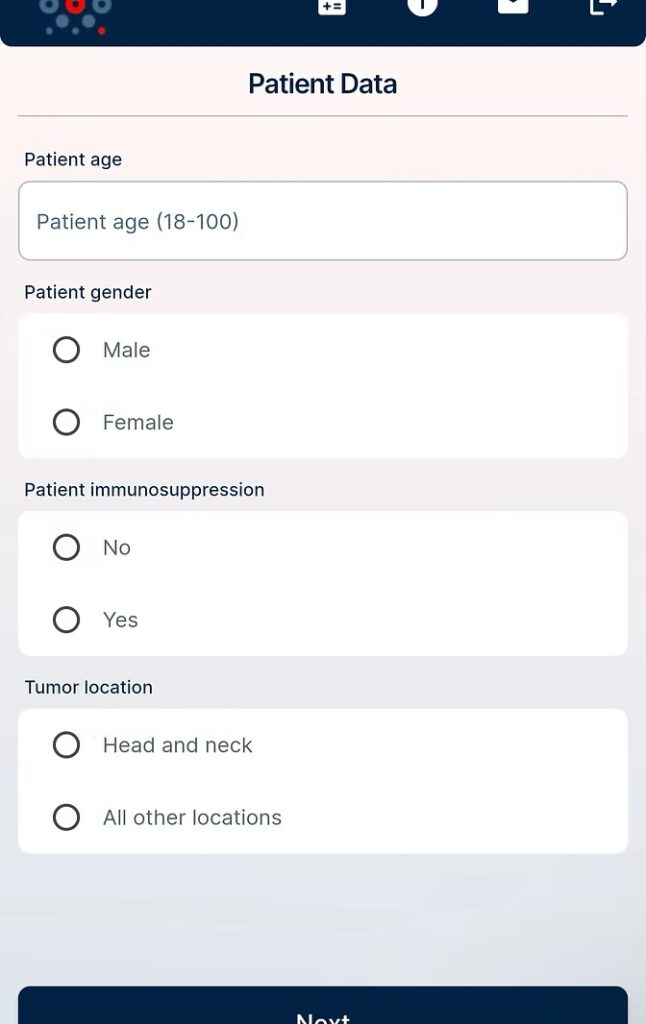Meet riSCC, a new data-driven app designed for risk stratification of cutaneous squamous cell carcinoma (cSCC) in clinical settings.
Launched by the not-for-profit organization Skin Cancer Consortium Outcomes (SCOUT), riSCC is built from a multinational study of over 20,000 tumors. It will be used by clinicians to analyze patient and tumor characteristics to generate an evidence-based risk score for predicting cSCC outcomes.
Clinicians can access the riSCC app for free by visiting the SCOUT website at https://www.scoutconsortium.org/app-landing-page or by searching “riSCC” in the Google Play and Apple Stores.
riSCC was designed by Emily Ruiz, MD, MPH, Associate Professor of Dermatology, Harvard Medical School; Anokhi Jambusaria-Pahlajani MD, MSCE, Associate Professor, Division of Dermatology, Department of Internal Medicine, The University of Texas at Austin Dell Medical School; Bill Lotter, PhD, Researcher and Assistant Professor of Pathology at Dana-Farber Cancer Institute and Harvard Medical School; and Vincent Jeanselme, PhD, University of Cambridge.
“We are excited to launch riSCC to help clinicians better understand the risk of outcomes and tailor surveillance and treatment plans for skin cancer patients,” says Dr. Ruiz in a news release. “Every clinician strives to answer two crucial questions: what is the likelihood of recurrence, and what is the most effective treatment plan? With riSCC, we are not just providing answers, we are equipping healthcare professionals with a tool that can transform their approach to patient care.”
“The features of riSCC empower healthcare providers to improve patient outcomes by making individualized, evidence-based treatment decisions for each patient,” adds Dr. Jambusaria-Pahlajani. “Making the riSCC application available to our peers globally was a top priority.”
Clinicians can access the riSCC app for free by visiting the SCOUT website at https://www.scoutconsortium.org/app-landing-page or by searching “riSCC” in the Google Play and Apple Stores.


